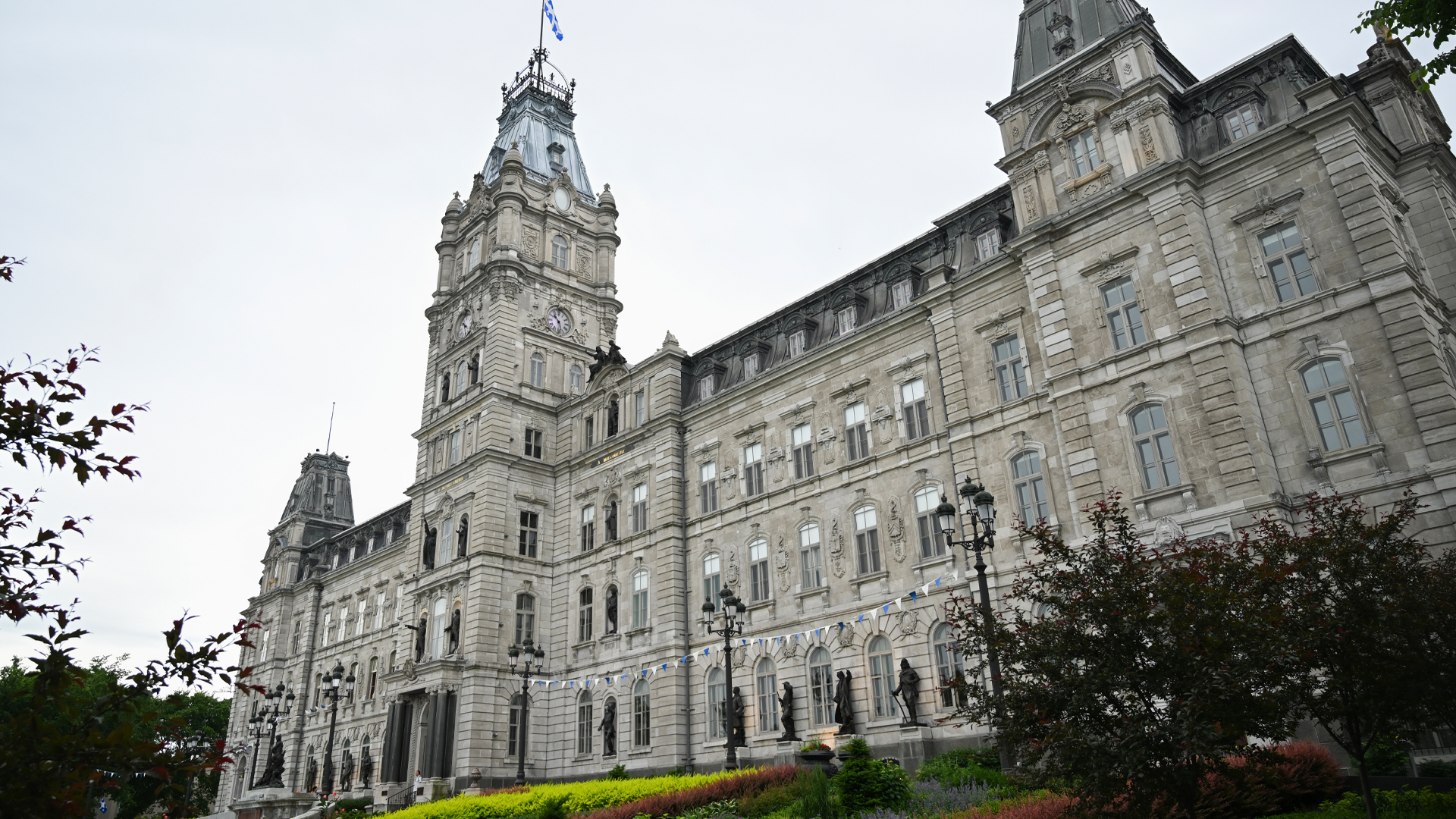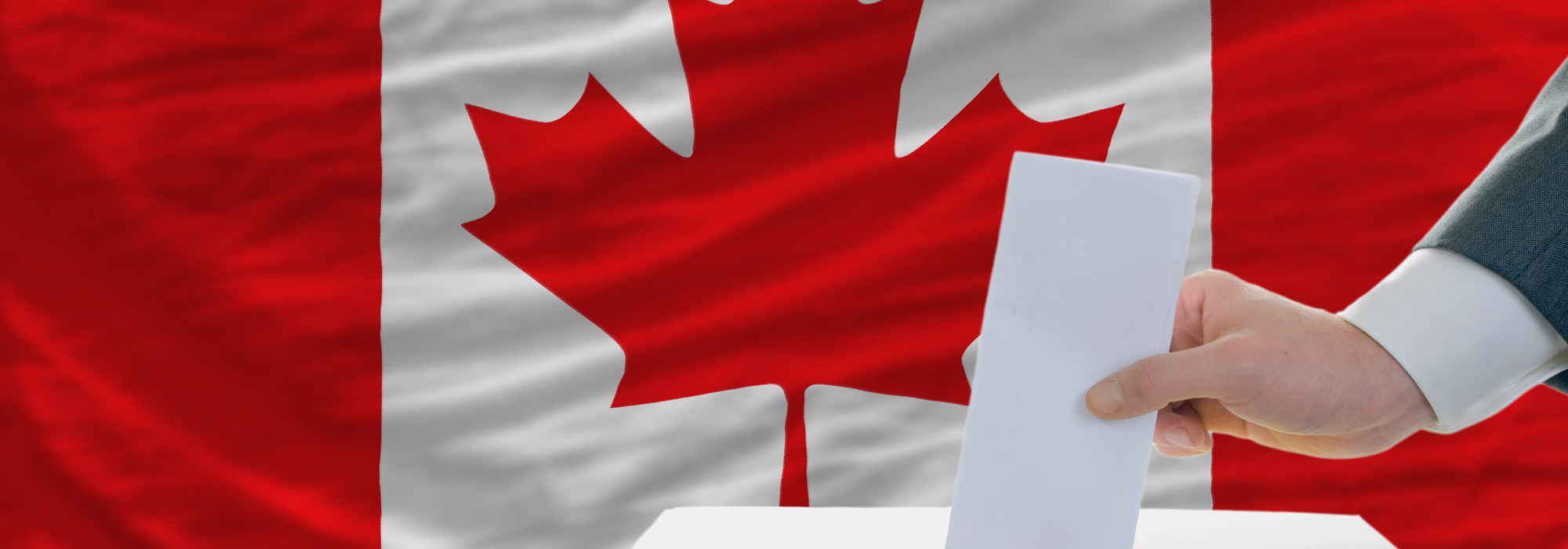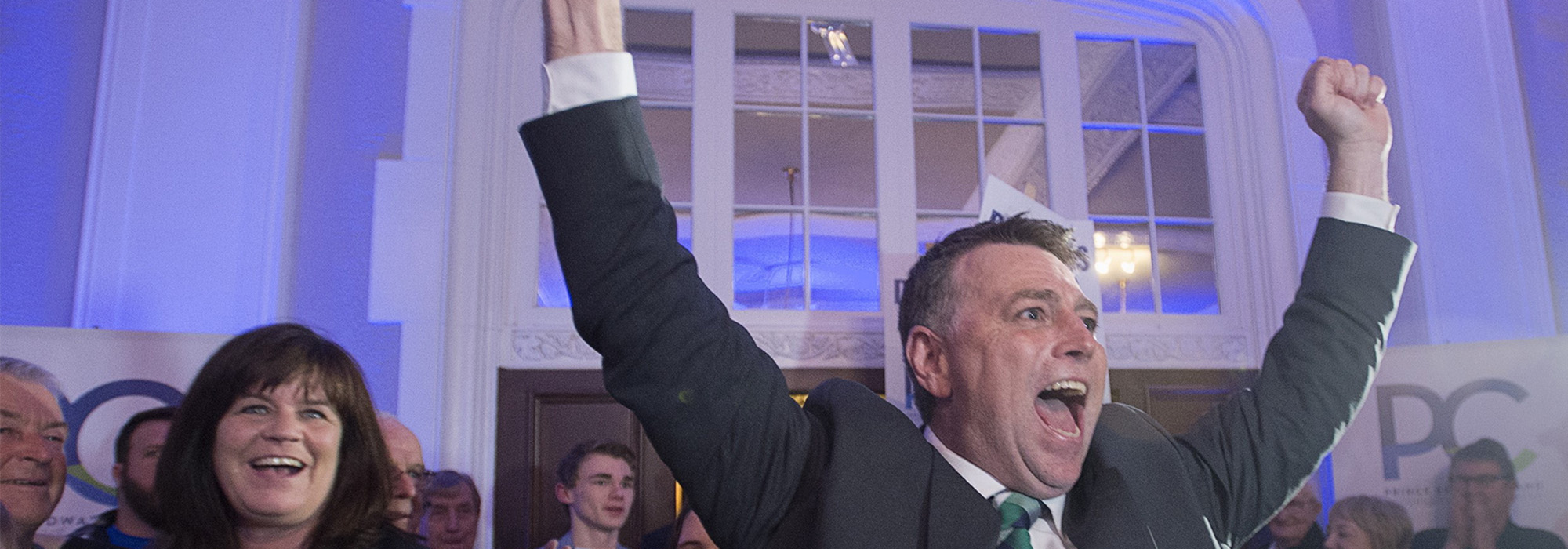
On Tuesday @CdnDemocracy, the « Official Government of Canada Twitter account for Democratic Institutions » tweeted the following, which quotes someone who was presumably at a Thunder Bay town hall on electoral reform: « From #TBay: my ballot right now elects both a local representative and the PM. I would like to have a separate vote for each #EngagedinER« .
I responded the way many political scientists and other « my-God-the civics-in-this-country-is-deplorable »-sensitive Twitterati might, by bemoaning not just the commonly held (or lazily phrased) notion that voters elect the prime minister in Canada (we don’t), but also the fact that a government account would repeat such nonsense (and yes, it was just quoting some random person, but it’s still irresponsible to spread factually incorrect statements like that).
Not only is there no way in which the current electoral system allows anyone to elect the PM, but there’s no system available in a Westminster parliamentary system that would have a ballot option to do so. If you want to be able to elect a PM, then we need to change our whole system of government, not just the electoral system.
My complaint was met with some typical — and also inaccurate — responses, which can be summarized as follows (these aren’t direct quotes): « sure we don’t formally elect the PM, but in practice we do »; « Canadians think they vote for the PM so that’s basically what they’re doing »; and « it’s just semantics. »
Neither formally nor in practice do Canadians elect the prime minister. And I’m not just referring to the fact that the governor general appoints the PM – though even if we try to reduce that to a mere formality we would be asked to ignore certain controversies that arose as far back as 1926 and as recently as 2008. In practice, Canadians vote for a local MP, the winner is almost always the candidate of a major political party. Canadians elect legislatures, not governments. This is central to our parliamentary system of governance.
At this point half of the readers of this article are thinking, « yeah yeah, but voters vote based on the party leader and who they want as PM. » This is certainly true. We have ample evidence that voters are attuned to the party leaders, and the media coverage of politics, especially election campaigns, reinforces this. Research suggests that support for the local candidate might be a consideration for only a very small percentage of voters.
But what motivates a vote is different from what a vote does or how it is cast. A voter might want Justin Trudeau to be prime minister, but unless they happen to vote in Montreal’s Papineau riding, they’re not voting for Trudeau, they’re voting for the local candidate carrying the Liberal banner (and even Trudeau the MP can be distinguished from Trudeau the PM).
« OK fine, » you might be thinking, « but the vote still influences who becomes PM. » Influences, yes, but conditionally, indirectly and even then not always: consider when party leaders step down and are replaced between elections (for example, Brian Mulroney replaced by Kim Campbell in 1993).
But why does this matter? Who cares if people are just lazy and say that we elect the PM?
One answer is the academic one: it matters because it’s a reflection of the civic knowledge in this country. The mistaken perception that governments are elected feeds ignorance and confusion about the operation of the parliamentary system as a whole. Just look at the debate over the 2008 prorogation controversy, where a good number of Canadians were apparently convinced that the only legitimate government is the one composed of the party that wins the most seats in the legislature – an idea that is not contemplated by our system and that undercuts the key concept of responsible government.
Even more importantly, and ironically for the advocates of proportional representation (PR) systems who took me to task for my criticism of the original tweet, this misrepresentation of how Canadians vote could conceivably have practical implications for how the system works. If we encourage the notion that we vote for the PM, even indirectly, and we chalk it up to « well, it’s how Canadians vote in their heads anyway, » then that also becomes true for myths about government formation.
People arguing that this is just semantics also argue that, in practice, the PM has always been the leader of the party that wins the most seats, so in effect we’re indirectly electing the PM anyway. First, this isn’t true (again, see Kim Campbell) but, more importantly, under proportional representation, our culture of automatically granting power to the party with the most seats would undoubtedly change. Minority or coalition governments that enjoy the support of multiple parties would almost certainly become closer to the norm.
If we keep lazily asserting that we elect PMs, thus misrepresenting how responsible government works, suddenly governments that aren’t composed of the party that wins the most seats look illegitimate in the eyes of those Canadians, under the false impression that they elect the PM. And a system that produces results that many people find illegitimate becomes a problem (or so PR advocates keep telling us).
It’s true that academics are among the most pedantic people on the planet. Occasionally, there is reason behind that pedantry.
Photo: vepar5 / Shutterstock.com
This article is part of the Electoral Reform special feature.
Do you have something to say about the article you just read? Be part of the Policy Options discussion, and send in your own submission. Here is a link on how to do it. | Souhaitez-vous réagir à cet article ? Joignez-vous aux débats d’Options politiques et soumettez-nous votre texte en suivant ces directives.







